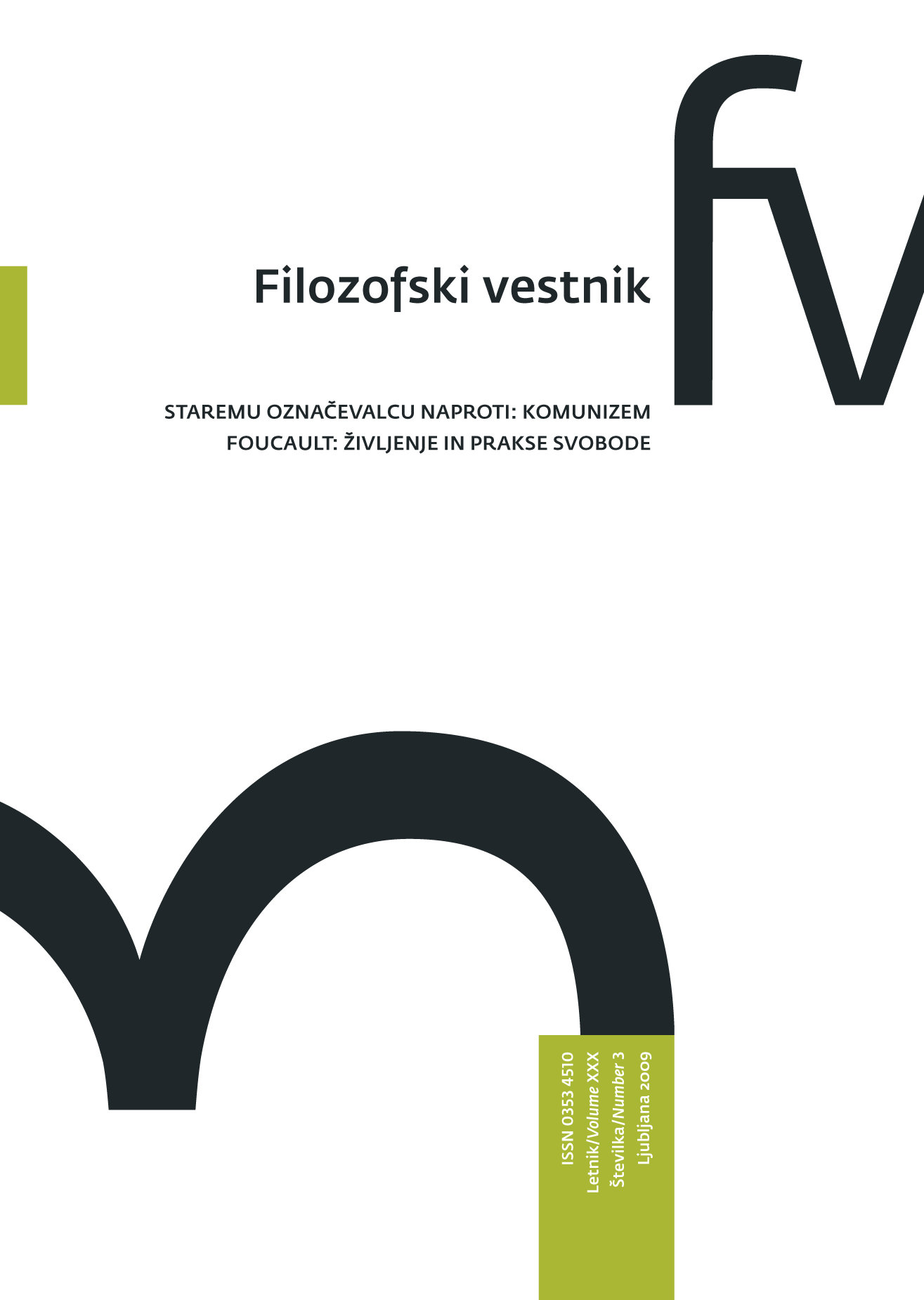Zmoremo, torej moramo
Ključne besede:
Badiou, komunizem, komunistična hipoteza, materializem, etika filozofijePovzetek
Zdi, se, da pričujoča situacija, ko gre za komunizem, pušča odprta vrata edino za to, da se učimo iz zgodovine in odpovemo vsem emancipatoričnim sanjam, ki so na koncu pripeljale zgolj do nasilja krivic in brezštevilnih smrtnih žrtev. Proti temu stališču Alain Badiou zagovarja tezo, da je nujno vztrajati na – nemožni – možnosti ideje komunizma. Ta članek poskuša izpeljati nekatere posledice iz Badioujevega militantnega vztrajanja na nujnosti ponovne obravnave »komunistične hipoteze«. Na začetku se zato osredinja na vprašanje, kako misliti komunistične sekvence v badioujevskem pomenu, se pravi, kot zgodovinsko specifična udejanjenja singularnih kolektivnih subjektov, ki vzpostavijo in ohranjajo nemožnost neenakosti. V drugem koraku pa članek pokaže, da mora filozofija misliti komunizem komunističnih singularnosti ne le iz političnih razlogov, marveč zato, da bi ostala filozofija in da bi se ognila temu, da bi postala sofistika. Zato da bi filozofija ostala filozofija, mora vzeti komunistično hipotezo kot svoje lastno izhodišče. Sklep članka je, da pokaže, zakaj moramo nujno v filozofiji in zanjo vztrajati, da zmoremo in zatorej tudi moramo biti komunisti.Prenosi
Podatki o prenosih še niso na voljo.
Prenosi
Objavljeno
2016-03-08
Kako citirati
Ruda, F. (2016). Zmoremo, torej moramo. Filozofski Vestnik, 30(3). Pridobljeno od https://ojs.zrc-sazu.si/filozofski-vestnik/article/view/4462
Številka
Rubrike
Staremu označevalcu naproti: komunizem
Licenca
Avtorji jamčijo, da je delo njihova avtorska stvaritev, da v njem niso kršene avtorske pravice tretjih oseb ali kake druge pravice. V primeru zahtevkov tretjih oseb se avtorji zavezujejo, da bodo varovali interese založnika ter da bodo povrnili morebitno škodo.
Podrobneje v rubriki: Prispevki





